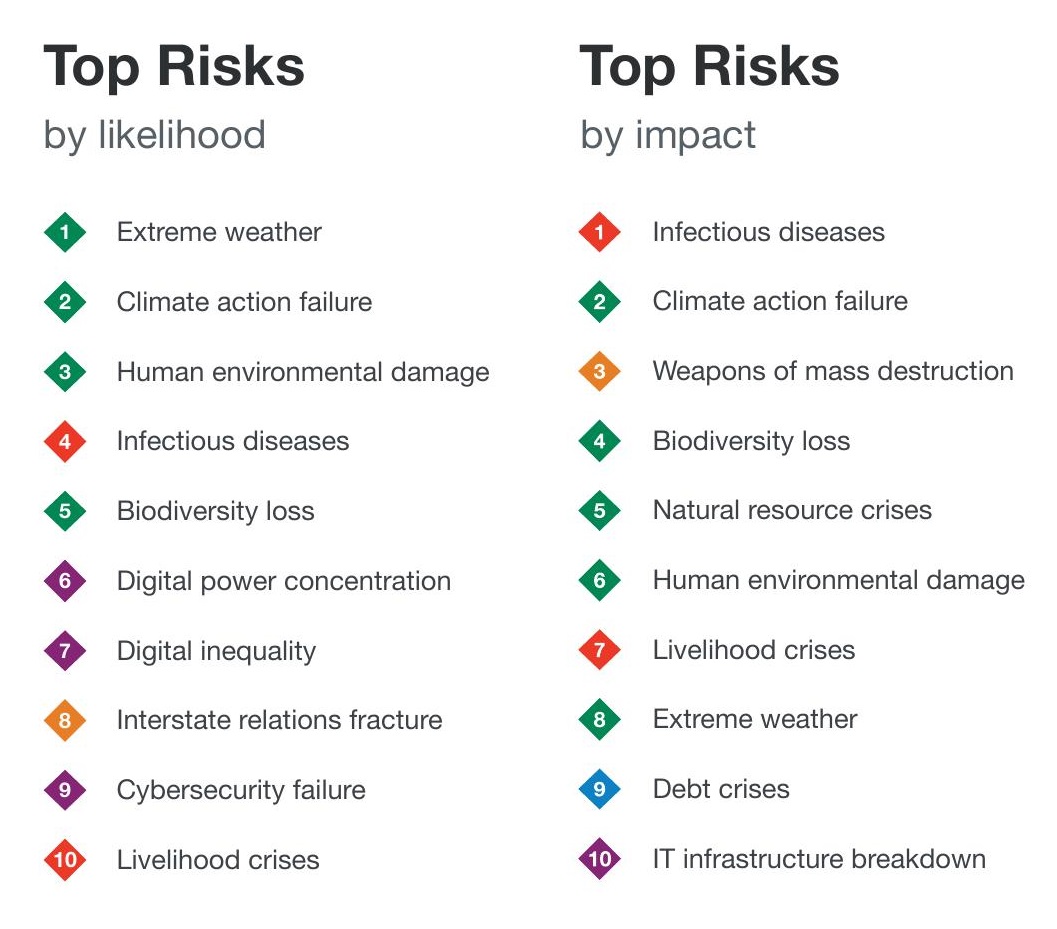Collaboration Essential to Protect Biodiversity
- Need to address biodiversity loss highlighted at recent We Value Nature 10-Day Challenge
- APRIL hosted panel discussion on creating partnerships to protect endangered wildlife
Earlier this year, The World Economic Forum (WEF) published the sixteenth edition of its Global Risk Report that ‘analyses the risks from societal fractures—manifested through persistent and emerging risks to human health, rising unemployment, widening digital divides, youth disillusionment, and geopolitical fragmentation.’ This year’s analysis was notable for the rise of environmental issues in the report’s risk ranking, with climate action, extreme weather and biodiversity loss featuring prominently.
More notably, biodiversity loss was ranked in the top five risks by likelihood and impact for the first time, acknowledging its increasing importance to global stability and growing awareness of the vulnerability of the global economic and social system to pressing environmental threats.
The need to address biodiversity loss was discussed at the recent We Value Nature 10-Day Challenge where APRIL hosted the ‘Creating Partnership to Protect Endangered Wildlife’ session. We Value Nature is an EU Horizon 2020-funded three-year campaign. The campaign is supporting businesses and the natural capital community to make valuing nature the new normal for businesses across Europe. The session brought together prominent speakers from Fauna & Flora International (FFI), Sintas Indonesia and APRIL to discuss how public and private sectors can work in partnership to address the risk of biodiversity loss, with the WEF report findings set as the backdrop for discussion.
From the dialogue, it was clear that most agree that the current situation demands a more collaborative approachamong businesses and conservation-focused organisations. This is good for business too, as ecological health is fundamental to sustainable production for resource-based companies like APRIL and this cannot be achieved without a healthy biodiversity.
At the same time, conservation NGOs have long been committed to addressing biodiversity loss and have years of experience, technical capability, and a tremendous understanding of standards and frameworks that can help resource-based companies advance on their sustainable trajectories.
Pippa Howard, Director for Extractives and Infrastructure Development of FFI who spoke during the session made it clear that collaboration to protect biodiversity must go hand-in-hand with the sustainable use of resources in a production context and its value in accelerating progress. “Collaboration also improves agility and speed so that things can happen faster especially in the emerging world,” she adds.
Another point made was the importance of partnership with local conservation NGOs. APRIL and its ecosystem restoration program, Restorasi Ekosistem Riau (RER), have been working closely with Sintas Indonesia, a local NGO that specializes in the conservation of the Sumatran Tiger and leopards in Indonesia.
“Over the years, Indonesian experts and local NGOs’ technical capacity on conservation has grown. This is an opportunity for future partnership due to natural landscape and policy dynamics in Indonesia,” said Hariyo T. Wibisiono, Director of Sintas Indonesia/Forum HarimauKita during the session when asked about the benefits of collaboration between private and public sectors.
Eventually, what matter most is resilience according to Craig Tribolet, Sustainability Operations Manager at APRIL. “Companies that fail to understand the importance of nature are risking not only their license to operate but also the ability to achieve the world’s climate goals. That is why biodiversity protection has been an important part of APRIL’s sustainability aspirations where it has made serious commitments through its Restorasi Ekosistem Riau program, its Sustainable Forest Management Policy 2.0 which includes its 1-for-1 commitment to conserve one hectare for every hectare of production, and its recently announced APRIL2030 commitments and targets to have a positive impact on climate, nature and people by 2030.”
These most recent commitments include investing in landscape conservation and supporting wildlife conservation in Indonesia as part of a balanced production-protection approach, where production funds the technical capability and resources needed to sustain conservation and restoration in the long-term.





